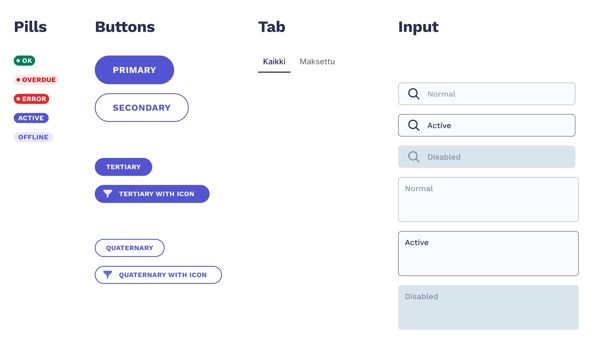At Fraktio, transparency is a guiding principle. Not everything is disclosed, but we maintain as much transparency as possible - including salaries.
We’re not Bridgewater-level transparent, where they share negative feedback in real-time and publicly. We aim for psychological safety and tact. The most surprising feature of this culture may be our open salaries. Open to employees, not the public, like at Buffer.
Transparency as a guiding principle
One of our guiding principles is transparency. We share as much information internally as possible. This helps people make good decisions closest to the action. It’s required for autonomy and decentralisation. It is also a show of respect and trust in people’s competence.
Information should flow freely and be accessible. The downside is too much information for people to handle, leading to overload. It takes self-control not to ingest it all or to not take part in too many discussions. Without proper processes, management, and summarisation, the information landscape can become chaotic.
With good communication and thought-out information storage, an organisation can better adjust to sudden changes. There is less uncertainty and rumours. People understand without the need to push new information and overlong explanations. More importantly, there is significantly less friction from surprises related to hidden internal information.
Of course, some personal, health, security, or NDA-bound information remains private. We aim to be as transparent and direct with our customers and partners as possible, but realise we cannot necessarily apply the same principles there. But some personally meaningful things, like exact salaries, may be visible to colleagues.
Transparent salaries
One logical outcome of emphasized transparency is visible salaries for the whole organisation. This can happen indirectly via a salary model based on visible metrics or a simple listing of salaries. Displaying salaries should be opt-out or opt-in, since no one should be forced to comply, per Finnish law.
The effects are multiple. To start with the positives, the transparency reduces speculation and rumors. People know where they stand and where their colleagues stand. This helps with discussing and managing raises. It helps with hiring. People can pinpoint someone’s salary, even if they’re too humble to do it themselves. The system becomes self-correcting, but also self-limiting.
Now, the negatives. While it’s hard to go overboard with transparent salaries, it’s also harder to justify larger pay gaps - even if based on merit. Individualistic people looking to maximise their salaries may find this system off-putting. This leads to a workforce and culture that is arguably more collective-minded and cohesive, but may be devoid of certain top performers. To my knowledge, there is no perfect way to assign a salary. Whether it is a complicated system of parameters or a simple measurement of “impact,” there’s always a subjective view or an objective metric that can be twisted and abused.
Transparent salaries have pros and cons. This system isn’t automatically easy or better financially, but it’s fairer and ethically right. That itself has some worth.
The incoming EU directive
The European Union is pushing for a directive in the coming years that forces companies to publish internal salary statistics based on a role or job description. This aims to increase transparency, fairness, and objectivity.
From what I understand, the directive will lead to laws that:
- Require companies to create systems that enforce equal pay for equal work, using gender-neutral criteria
- Require employers to provide pay level range information to job seekers and disallow them asking for the seeker’s previous salary information
- Allow employers to get statistics of their own pay level
- Require larger organisations to report salary statistics and possible gender pay gaps
- Enforce the commencement of pay assessment processes
The timeline for this directive to take effect as individual member states’ laws will take years. The laws are unlikely to dictate how exactly these requirements are met. Companies can solve these tasks as they see fit. I imagine there will be a lot of work for management consultants, especially where there are unexplained gaps and decades’ worth of salary progressions, role changes, and different salary models.
One can argue if the European Union is once again creating more bureaucracy and waste, but then again, the ethical arguments in favor of these changes have their own worth.
Conclusion
I see transparency as a crucial trait in a company. Whether or not that includes salaries is up to the companies themselves. My anecdotal data from transparent salaries suggests the upcoming EU directives have merit. Fairness affects motivation, which affects performance and productivity, impacting the bottom line and possibly everyone’s salaries.
I recently joined Sini Jämsén on Mandatum's Palkittu podcast, where we explored the topic of salary transparency and the upcoming EU Pay Transparency Directive. Listen to the podcast to learn more about how salary transparency works at Fraktio and to hear some tips for companies taking their first steps toward openness and transparency. (Podcast in Finnish)





